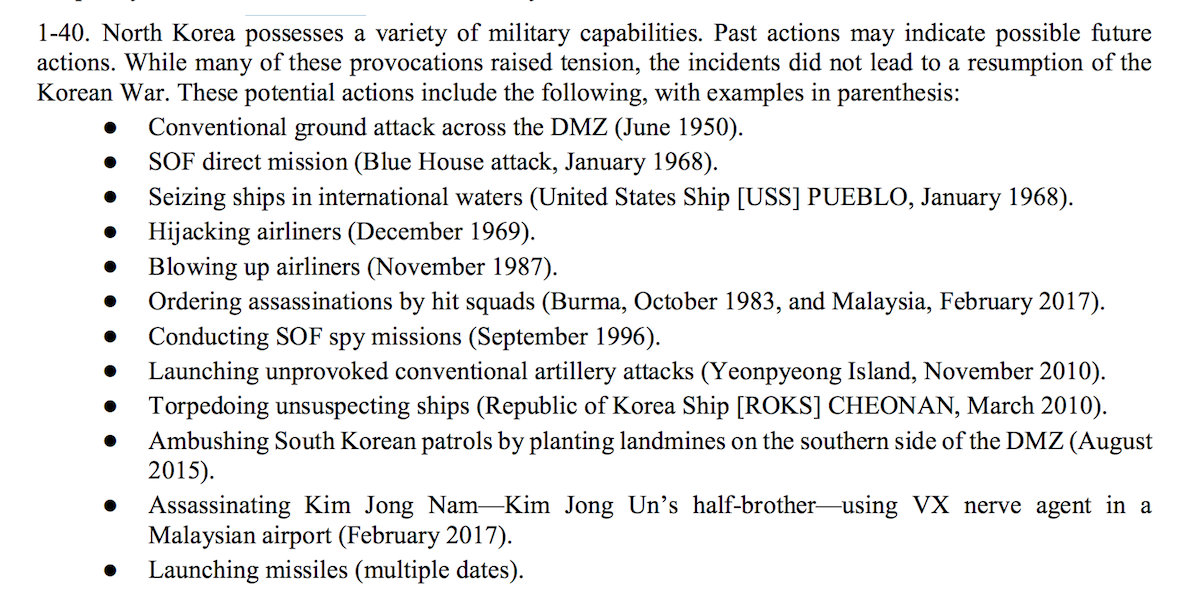North Korea’s military “uses tactics based on former Soviet or current Russian doctrine, Chinese developments, lessons learned, and observation of recent military actions,” according to a new US Army manual on the subject.
“While North Korea maintains large amounts of military equipment, much of it is outdated making it quantitatively superior to most armies but qualitatively inferior,” the new manual said. See North Korean Tactics, Army Techniques Publication (ATP) 7-100.2, 24 July 2020.
But North Korea has proved resourceful in other areas, including offensive cyber warfare.
“The primary organization responsible for computer warfare in North Korea is Bureau 121, which fielded at least 1,000 elite hackers in 2010 who focused on other countries’ computer systems. This number is likely much higher now” and includes “cyberspace teams [deployed] in foreign countries.”
And not least of all, “The country’s possession of a nuclear arsenal and its pursuit of missile technology are attempts to ensure that external powers do not interfere with its internal affairs for fear of a nuclear reprisal,” the Army manual said.

“North Korea is constantly adapting and evolving its capabilities,” the Army said.
January saw us watching whether the government would fund science. February has been about how that funding will be distributed, regulated, and contested.
This rule gives agencies significantly more authority over certain career policy roles. Whether that authority improves accountability or creates new risks depends almost entirely on how agencies interrupt and apply it.
Our environmental system was built for 1970s-era pollution control, but today it needs stable, integrated, multi-level governance that can make tradeoffs, share and use evidence, and deliver infrastructure while demonstrating that improved trust and participation are essential to future progress.
Durable and legitimate climate action requires a government capable of clearly weighting, explaining, and managing cost tradeoffs to the widest away of audiences, which in turn requires strong technocratic competency.